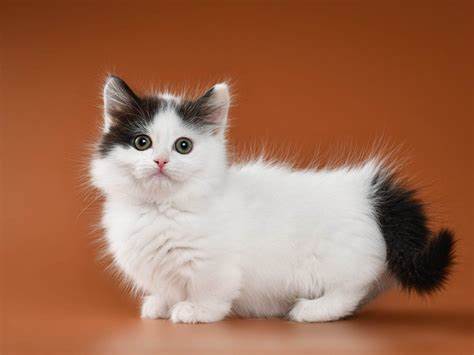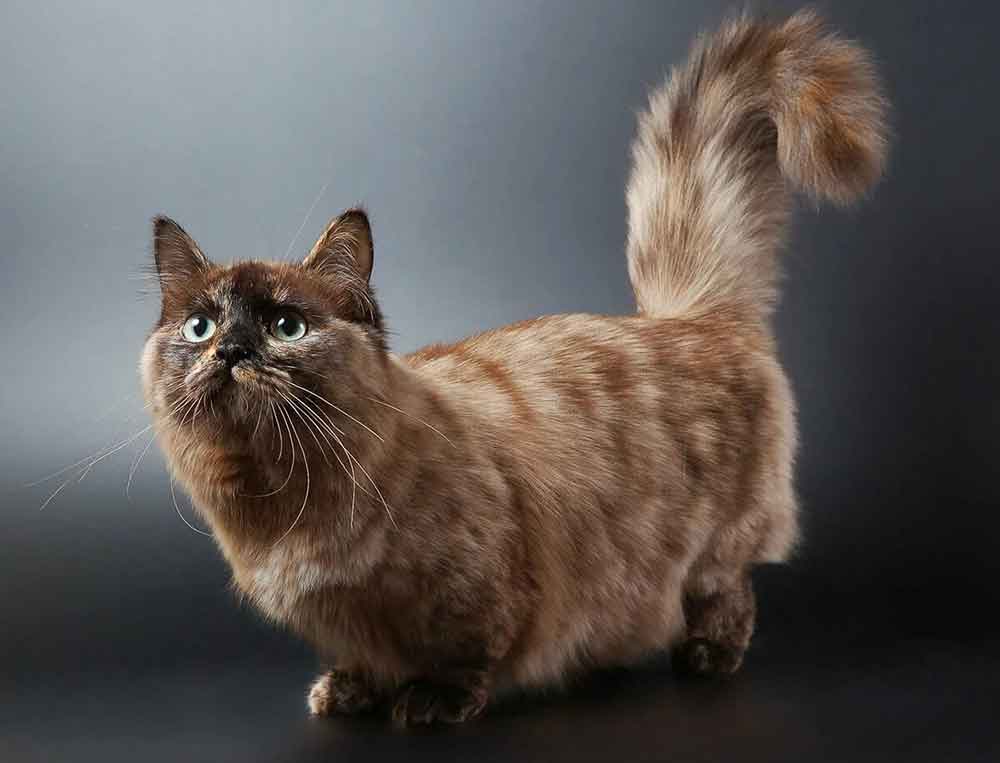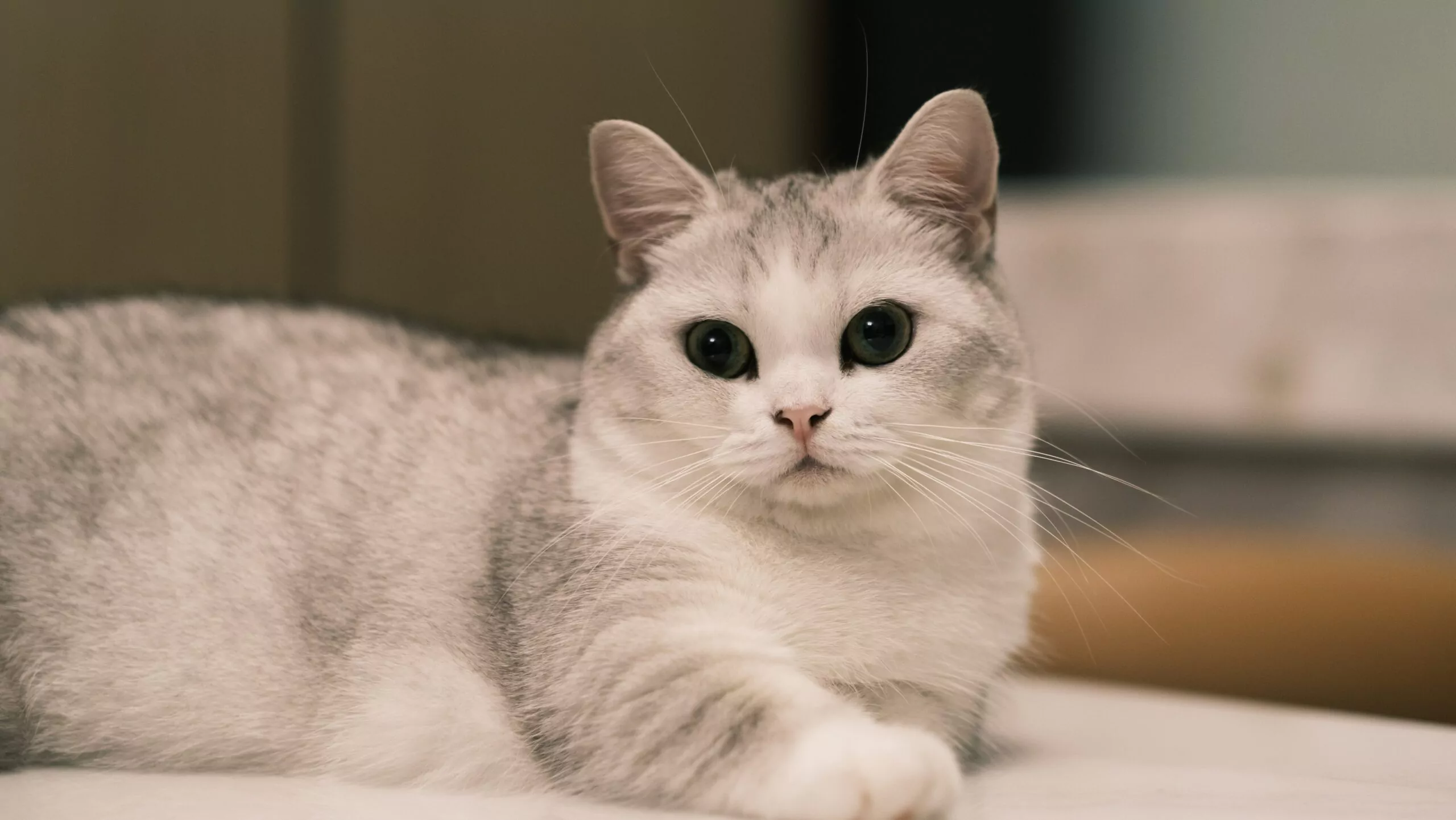Munchkin: The Playful and Adorable Short-Legged Cat

History of the Munchkin
The Munchkin is a relatively modern breed, first documented in the 1980s but with historical references to short-legged cats dating back centuries. The breed’s signature short legs are caused by a naturally occurring genetic mutation that affects limb length while keeping the body well-proportioned.
The breed was officially developed in Louisiana, USA, when breeder Sandra Hochenedel discovered a short-legged stray cat in 1983. This cat, named Blackberry, became the foundation of the breed. The International Cat Association (TICA) recognized the Munchkin as a breed in 1994, but other registries, like the CFA, do not yet accept it due to ongoing debates about potential health concerns.
Popularity of the Munchkin
The Munchkin has skyrocketed in popularity due to its adorable short legs, playful nature, and energetic personality. It is one of the most recognizable and sought-after cat breeds worldwide, particularly among cat lovers who adore unique and unusual breeds.
Physical Traits of the Munchkin
The Munchkin is a small to medium-sized cat with short legs and a long body.
• Coat: Can be short, medium, or long-haired, with a soft, silky texture.
• Colors: Found in a wide variety of colors and patterns, including solid, tabby, bi-color, and calico.
• Size: Small to medium-sized, typically weighing 5 to 9 pounds.
• Head & Expression: Round face with large, expressive eyes that give an inquisitive look.
• Ears: Medium-sized, upright, and set wide apart.
• Legs: Short due to the genetic mutation affecting limb length, but strong and sturdy.
• Body: Long and well-muscled, making it agile despite its short stature.
Behavioral Traits of the Munchkin
The Munchkin is known for its curious, playful, and affectionate personality, making it an ideal companion for families and individuals alike.
• Loves to Play: Despite its short legs, the Munchkin is fast, agile, and energetic.
• Highly Social and Friendly: Enjoys spending time with humans, children, and other pets.
• Intelligent and Trainable: Quick learners who can fetch, learn tricks, and use puzzle toys.
• Loyal and Affectionate: Bonds deeply with its owners and enjoys snuggling.
• Not Very Vocal: Communicates with soft chirps and purring rather than loud meows.

Why Choose a Munchkin?
For those looking for an adorable, loving, and energetic companion, the Munchkin is an excellent choice.
• Perfect for Small Spaces: Small size makes them ideal for apartments.
• Low Grooming Needs: Short-haired Munchkins require minimal brushing, while long-haired ones need weekly grooming.
• Affectionate and Social: Thrives in a home with companionship and interaction.
• Great with Other Pets: Gets along well with cats, dogs, and children.
• Highly Playful and Entertaining: Enjoys chasing toys, running, and exploring.
Caring for Your Munchkin
The Munchkin requires proper care, exercise, and a balanced diet to stay healthy and happy.
• Grooming: Weekly brushing for long-haired Munchkins; short-haired ones need only occasional brushing.
• Exercise: Needs daily playtime to maintain muscle tone and prevent obesity.
• Mental Stimulation: Thrives on puzzle toys, interactive games, and training sessions.
• Nutrition: A high-protein diet supports muscle development and energy levels.
• Companionship: Prefers social environments and should not be left alone for long periods.
Health Considerations
The Munchkin is generally a healthy breed, but due to its short-legged gene, some concerns include:
• Lordosis (Spinal Curvature): Some Munchkins may develop a curved spine, but reputable breeders work to reduce this risk.
• Joint Sensitivity: Short-legged breeds can have minor mobility issues as they age.
• Obesity Prevention: Regular activity is important to maintain a healthy weight.
• Respiratory Sensitivity: Some Munchkins may be prone to mild breathing issues due to their body structure.

Comparisons to Other Breeds
Compared to the Minskin, the Munchkin has more fur and a sturdier body, whereas the Minskin is more hairless and fragile. Unlike the Scottish Fold, which has folded ears, the Munchkin has normal ear placement but shares a similar playful temperament.
Compared to the Dachshund in dogs, the Munchkin’s short legs result from a similar genetic mutation, but Munchkins do not typically have the same spinal risks as Dachshunds.
Is the Munchkin Right for You?
The Munchkin is perfect for cat lovers who want a playful, affectionate, and unique-looking companion. If you enjoy interactive play, snuggling, and having a cat with a fun-loving personality, the Munchkin will be a wonderful choice.
However, if you prefer a cat with longer legs or one that is highly independent, this breed may not be the best fit.
Ready to Welcome a Munchkin?
United Pet Club is here to help you find the perfect Munchkin companion. Whether you're looking to adopt or connect with trusted breeders, we provide valuable resources to guide you every step of the way.
Explore our platform to learn more about Munchkin cats, their history, and how to care for them. Contact United Pet Club today to start your journey with this adorable and playful feline!
